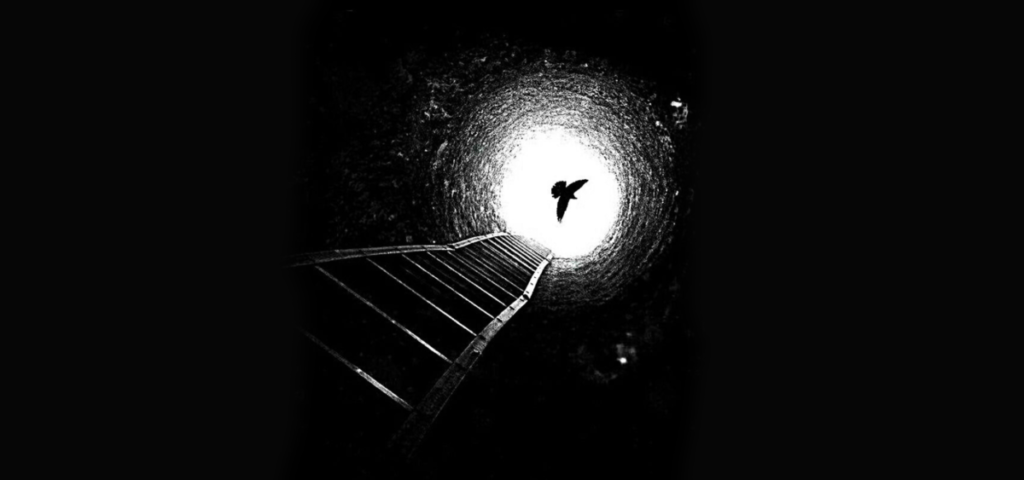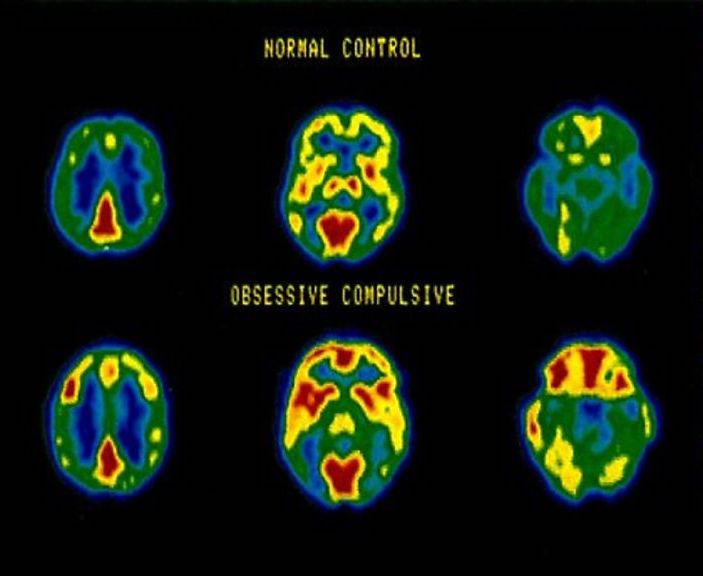*Trigger warning* – suicidal ideation
Howard Hughes, American business magnate and record-breaking pilot – portrayed by Leonardo DiCaprio in the Academy Award-winning biopic, The Aviator – perishes on his bed, completely consumed by his degenerative mental condition. Hughes died in isolation after two decades of incremental reclusiveness, inside the fortress bedroom he built to protect himself. He never stood a chance; medicine at the time wasn’t as sophisticated as it is today. There was not enough research and knowledge about his condition. Now we know that Howard Hughes had a biochemical imbalance in his brain that induced him to develop obsessive and compulsive behaviors, like repeated sanitizing against germs. A condition commonly known as obsessive-compulsive disorder.
There’s a common trope that OCD is a quirky tic that causes neat freaks to organize things in a certain way. That is false. OCD is a mental disorder that affects people in varying degrees. When untreated, it can become completely debilitating for the sufferer. This article aims to explore the condition with personal anecdotes, experiences, and reflections of the illness. Perhaps those at war with their minds can relate, too.
A normal day in life
The security guard looks at me with a strange look as I open the building door, enter, exit, and then repeat the process until I get it “right” – a glitch that can last seconds or hours; but I must overcome it first before anything else. A passer-by looks at me with wonder, trying to understand what I’m trying to achieve. Once satisfied, I smile and wave in an attempt to compose myself. My attempt to normalize the situation fails and raises all sorts of erroneous impressions and uncertainty. Carelessly, after almost ten years down the road of being OCD-conscious, I continue my day normally.

Noticing abnormal patterns
It began in my late teens when I started feeling a strong abnormal necessity to repeat actions and behaviors until it felt just right. Obliviously, the obsession from that erroneous satisfaction augmented and migrated to other forms of behavioral dysfunction. It went from forced thought-and-touch synchronization, to closing my eyes, covering my ears, and murmuring to myself to avoid seeing and hearing the voices of family members whom I feared due to stories told about them. I thought that disassociating from them at all costs would forbid them from influencing me with their wrong way of living and their evil – ideas fed largely unproven and propagated by my own mother. Eventually, everything relating to those people was contaminated, too. Names, birthdates, numbers, places, images, you name it. When I am exposed to these irrationally corrupt things, I experience an enormous amount of anxiety. I start feeling discomfort, short breath, muscle tension, and nervousness.
Mom and dad have never understood, so they kept unknowingly exposing me to what felt like a living hell to me. My anxiety kept skyrocketing and consuming all of my mental energy, resulting in painful migraines sometimes. Several times when I left home to meet friends, I heard my father whisper to my mother, “What’s up with that kid? He’s doing that again; opening and closing the door.” I was getting stuck in my rituals for hours, and even days. On the worst days, I’d spend whole days in bed, unable to get up; no eating, not even drinking water.
I tried to work around these eternal and irrational cycles. For instance, to avoid exiting my bedroom to use the bathroom, and thereby get roped into compulsions for hours until sunrise, I started peeing in my bedroom’s trash bin. I also created a train of thought that must be sequentially recalled to counteract unwanted thoughts. If I mess up, I start all over again. Although always bringing just a temporary calm, I thought these exhausting methods helped me cope with the discomfort.
One day, the answer finally hit me… eureka! The messy wires in my brain are causing all this suffering. My brain is responsible for introducing these made-up irrational obsessions and ideas. My brain must be stopped immediately. When we are awake and conscious, the brain works. When we are asleep, unconscious, or in coma, the brain still works. In order to forever silence it, it must be taken out at the cost of myself.
The point of inflection

One day, after a week-long streak of barely getting out of bed, I found myself in the same condition that Howard Hughes was in in his last moments. I was sweaty, in a dark room, naked, hopeless of getting better, and exhausted physically and mentally. I told my partner at the time to leave the house and go outside. Not because I wanted to be alone – she was taking care of me by bringing food and water since I was unable to sustain myself – but because I didn’t want her to see me on my deathbed so utterly consumed and deteriorated. Left by myself in that very dark room, with just a bit of sunlight filtering in and the sound of kids playing outside, laughing and having fun, I started begging to whoever is in charge – the almighty – to finally bring me to an end; to put me out of this misery, in this last stretch of a genuine desire of resting in peace forever. Then, I started thinking about how random and unpredictable life is. Nothing is ever certain. We do what we can with what we can get. I thought about the final escape from it. But what about lobotomy? What about my family? I am the only son of seven children, and the youngest of them all. How would that make my mother, father, and sisters feel? I heard my aunt say once that doing it is a cowardly thing to do. Am I a coward if I do it, or am I a coward if I don’t? What about the people who knew me? What would they think? Would they care? And how long would they care? How much would the pain of transitioning from life to death actually be? Am I scared of what happens next? As a Catholic, wouldn’t it be a sin? What if there’s still way more to life that hasn’t come yet?
I can’t tell which exactly, either the hopeful intrigue for the future, a growing and timely-built faith in God, the true love I’ve felt once for another human, or the sympathy for my family, pushed me forward. Maybe all of them. But now I surely feel pushed forward every day.
After a few years of receiving therapeutic help, daily medicine that keeps me more stable, continuous psychoeducation about OCD from amazing advances in research, clinical psychology, and medicine and technology in general, the future seems more promising than ever before.
Important takeaways
To clarify a few things, everyone with OCD needs medical intervention at some point, inevitably – unless the case is not negatively affecting, which is almost never true. OCD is a long-term condition that can last a lifetime, and like the snowball effect, it can worsen if not treated.
2.5 million Americans are affected by OCD, that is 1.2% of the country’s population.
However, this is just the diagnosed number. It is likely to affect women three times more than men. It usually starts becoming noticeable in the late teens or early twenties.

What now?
Lastly, as for myself, I think there is some kind of unique enlightenment that comes after being at that ugly, scarring cliff of emotion where you truly consider and idealize crossing between both worlds, which should never be glorified, and something no one wants to experience. The very bad days don’t seem so bad anymore, and there’s always something to work on to improve myself and other people’s quality of life.
The rainy days of Seattle don’t bother me much anymore, I’m looking forward to the rains this fall.








Thanks I knew I wasn’t alone